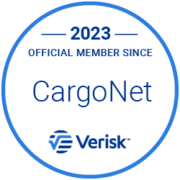Recently, I moved into a house that is more than 100 years old. Eventually, it will be my dream home, but at the moment, it needs a lot of work.
And I mean a lot of work, so I spend most of my weekends covered in paint and sawdust, working on projects to upgrade and customize the home to my liking. I’m a fairly handy guy, and I face a difficult decision with each new project: Do I tackle it myself, or should I hire someone who can offer expertise on the job?
Businesses face a similar decision when ready to implement a transportation management solution (TMS). Do they place the burden of implementing a TMS on their internal team? Or do they partner with a logistics service provider (LSP) with years of industry knowledge and experience?
Countless companies pour money into implementing an off-the-shelf TMS, reasoning that they can save some money by taking on a portion of the work themselves. If they purchase and maintain their own system, they will have more control over their transportation network and performance.
A do-it-yourself approach to logistics might seem appealing, but let’s look at some of the lesser-known costs of this strategy and then consider the benefits of working with a full-service LSP that can implement a powerful TMS solution like MercuryGate.
The Costs and Complications of DIY Logistics
Aside from the obvious price tag for a TMS, expect to spend a significant amount of time working with your IT department to integrate the system with your current technology and processes. Assuming you have the right people and the necessary resources, consider how frequently the project will pull your team members from their day-to-day roles.
Finding the best integration points based on your business information requirements and workflow is not always obvious—nor is it covered in system manuals. More often than not, you’ll need to hire experts to implement the software across finance, IT, and warehousing or logistics departments.
It should take about two to three months to fully launch a TMS with limited functionality. For a more customized suite of tools that works in tandem with your entire network, expect the process to take as long as six months (including testing time). Once you’ve finally implemented a TMS, you still aren’t out of the woods. Software maintenance and upgrades, license costs, and manpower demands will ultimately dictate an expenditure typically at least five figures.
You can expect the transportation industry and your company’s supply chain management requirements to evolve and grow with them over time. Even the most customer-friendly TMS will likely require some modification on your end, including custom work that might require the assistance of a programmer and dedicated IT staff.
For most companies, the extra control over their shipping systems doesn’t come close to meriting an investment of this magnitude.
Beyond these financial issues, many companies setting up their own TMS dramatically underestimate how much data they will receive. Information is good, but all the information in the world is useless without someone to sift through it and glean real-world insights. Expect to invest even more in the analytical resources required to turn the flood of data generated by a TMS into usable metrics that can contribute to your success.
We recently worked with a larger retailer that had gone down the path toward a TMS without a complete understanding of these common hurdles. This client acquired Oracle’s TMS but quickly realized it didn’t have the internal IT resources necessary to operationalize the system. We were able to step in and integrate with the client’s enterprise resource planning system, eventually completing the implementation using our own suite of solutions.
5 Reasons to Look for a Logistics Partner
It’s easy to watch several episodes of “Property Brothers” or “Fixer Upper” and feel inspired to renovate your home, but the reality is far more complicated than television makes it seem. A DIY renovation can quickly swell beyond the initial scope of the project.
The shipping world is similar. Organizations large and small might be tempted to manage their logistics and implement their own TMS, but they often bite off more than they can chew. A logistics service provider can deliver advantages that outweigh the limitations of doing it yourself.
- Lower Transportation Costs: A wise man once said, “If you think hiring a professional is expensive, try hiring an amateur.” This statement applies to any enterprise-level software solution, but it’s particularly true for a TMS. Working with an LSP might seem more expensive at first, but consider the potential long-term costs of a poorly executed implementation. Cost savings is the most important reason any business implements improvements to their shipping processes.
- Better Efficiency: Implementing a complex TMS is no easy task. Thankfully, it’s nothing new for an experienced LSP. We’ve done this before, and we have the right tools necessary to accomplish the job. This enables us to implement a TMS quickly and correctly despite any complexities specific to the client.
- New Industry Insights: An LSP lives and breathes logistics every single day. In addition to adapting to newer regulations like the ELD mandate, an LSP can help companies make the most of the latest technologies, such as real-time tracking, modern TMS software, and blockchain. Every organization’s supply chain is unique and complex, so working with a broad array of clients allows LSPs to develop and perfect industry-leading practices.
- Meaningful Metrics: A TMS provides a wealth of data at your fingertips. But turning that data into meaningful, actionable business intelligence is easier said than done. Logistics providers have developed views and reports to support multiple lines of decision-making. They know which reports are the most useful, and they continuously improve them based on client feedback.
- Peace of Mind: As with any project, it’s crucial to weigh out how confident you feel in your ability to accomplish the job at hand. While I might feel comfortable changing a few light fixtures in my house, I’d want to bring in an electrician to handle significant rewiring. When it’s time to implement your TMS, consider whether you want to tackle the task or outsource it to an expert in the field. Sometimes, it’s worth the investment to know that the job is done correctly.
How MercuryGate TMS and Sheer Logistics Combine Into a Total Game Changer
At Sheer, we handle technology and integration. No two companies are alike, which means no two logistics solutions can be exactly the same.
We combine all of your technology resources and channel that data into a powerful TMS system that is designed to provide insight, clarity, and control into your logistics processes. The result is a customized platform that can do a lot of heavy lifting for your business:
Standardized Data Collection Means Better Data – Most data that is used in decision making is based on unreliable manual methods that can skew results. With our MercuryGate integration services, we automate the data collection process from multiple sources to paint a clear picture of your business. True business intelligence starts with the most accurate data available.
Control Your Shipping in Real Time – Supply chains are full of moving parts and the visibility that MercuryGate freight management provides gives you full control over every aspect of your supply and distribution.
Increase Customer Service – Delivering products on time and in perfect condition is an aspect of customer service that is critically important in today’s markets. If your business can’t do this, somebody else will and Sheer Logistics is an expert at transforming your supply chains from a liability to a fully realized asset.
For most companies, it makes a lot of sense to recruit a logistics partner to facilitate transportation management instead of taking a DIY approach. This strategy can lead to lower costs, quicker implementation, and a higher degree of reliability than purchasing your own TMS.
Request a demo today for more information about teaming up with an experienced logistics partner.


